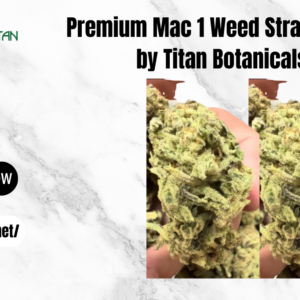In recent years, the concept of a vegan lifestyle has gained significant traction, not only due to its ethical implications but also because of its positive impact on the environment. As concerns about climate change and sustainability grow, more people are turning to veganism as a way to reduce their environmental footprint. This blog explores the environmental benefits associated with adopting a vegan lifestyle, shedding light on how our dietary choices can contribute to a healthier planet.

What is a Vegan Lifestyle?
Before delving into its environmental benefits, let’s clarify what it means to live a vegan lifestyle. Veganism is more than just a diet; it’s a way of living that seeks to exclude all forms of exploitation and cruelty to animals for food, clothing, or any other purpose. People who follow a vegan lifestyle do not consume animal products such as meat, dairy, eggs, honey, and other animal-derived ingredients. Instead, they opt for plant-based alternatives and products that are cruelty-free.
Reducing Greenhouse Gas Emissions
One of the most significant environmental benefits of a vegan lifestyle is its potential to reduce greenhouse gas emissions. Agriculture, particularly livestock farming, is a major contributor to greenhouse gas emissions such as methane and nitrous oxide, which are more potent than carbon dioxide in trapping heat in the atmosphere.
Livestock farming requires vast amounts of land for grazing and growing animal feed. Clearing land for pastures and feed crops leads to deforestation and habitat loss, further exacerbating environmental degradation. By shifting away from animal agriculture, vegans significantly reduce the demand for these resources, thereby lowering greenhouse gas emissions associated with land use change and agricultural practices.
Preserving Water Resources
Water scarcity is a pressing issue in many parts of the world, exacerbated by climate change and inefficient water use. Animal agriculture is incredibly water-intensive, requiring substantial amounts of water for drinking, cleaning, and growing feed crops.
For instance, it takes thousands of liters of water to produce just one kilogram of beef. In contrast, plant-based foods generally have a much lower water footprint. By choosing a vegan lifestyle, individuals can conserve water resources and contribute to more sustainable water management practices globally.
Minimizing Pollution and Environmental Degradation
Animal agriculture not only contributes to greenhouse gas emissions and water scarcity but also pollutes the environment in various other ways. The runoff from livestock farms often contains antibiotics, hormones, pesticides, and pathogens, which can contaminate water bodies and soil, posing risks to human health and wildlife.
Additionally, the waste produced by billions of animals in factory farms poses a significant environmental challenge. It can pollute air, water, and soil, contributing to localized environmental degradation and affecting nearby communities.
Transitioning to a vegan lifestyle reduces the demand for intensive animal farming practices, thereby mitigating these environmental impacts and promoting cleaner and healthier ecosystems.
Conservation of Biodiversity
Biodiversity loss is another critical environmental issue linked to human activities, including agriculture. Animal agriculture is a leading driver of habitat destruction, as forests and other natural landscapes are cleared to make way for livestock grazing and feed production.
By adopting a vegan lifestyle, individuals can help alleviate pressure on ecosystems and support biodiversity conservation efforts. Protecting natural habitats is crucial for preserving wildlife populations and maintaining ecological balance, which is essential for the health and resilience of our planet.
Energy Efficiency and Sustainable Food Production
Producing plant-based foods generally requires less energy and resources compared to animal products. For example, growing crops for direct human consumption is more energy-efficient than growing crops to feed animals, which then convert plant calories into animal calories.
Moreover, transitioning towards plant-based diets can promote sustainable food production systems that prioritize efficiency, minimize waste, and reduce reliance on synthetic inputs such as fertilizers and pesticides. These practices not only benefit the environment but also support long-term food security and resilience in the face of climate change.
Conclusion
In conclusion, adopting a vegan lifestyle can have profound environmental benefits by reducing greenhouse gas emissions, conserving water resources, minimizing pollution, supporting biodiversity conservation, and promoting sustainable food production. As individuals, we have the power to make choices that positively impact our planet and contribute to a more sustainable future.
By embracing veganism, we not only align our actions with our values of compassion and ethics but also play a crucial role in mitigating climate change and preserving natural ecosystems. Every meal we choose can be a step towards a healthier environment and a brighter future for generations to come.
Let’s continue to explore and support the environmental benefits of a vegan lifestyle, recognizing its potential to create meaningful and lasting change for our planet. Together, we can make a difference—one plant-based meal at a time.



